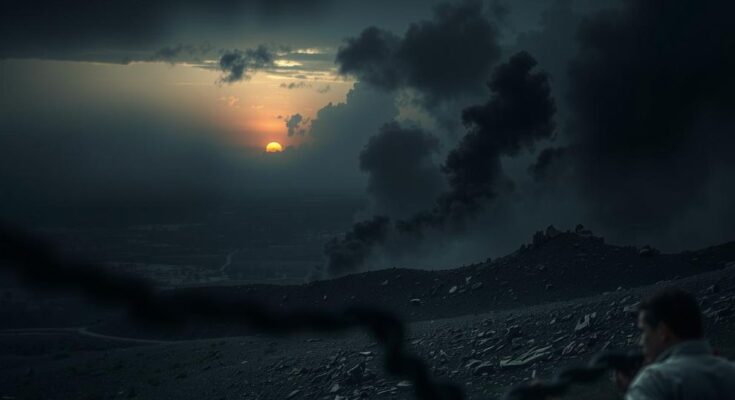M23 rebels have seized Goma, DRC’s largest city, purportedly to protect Congolese Tutsis from Hutu militias. This escalation has resulted in thousands of casualties and mass displacement. The conflict’s historical roots, compounded by international ineffectiveness and local governance challenges, threaten to ignite further regional violence unless addressed through concerted action and engagement.
M23, a rebel group primarily composed of Tutsis, has recently captured Goma, the Eastern Democratic Republic of Congo’s largest city. Allegedly supported by Rwanda, M23 claims to be defending Congolese Tutsis against Hutu militias associated with the Rwandan genocide. Reports reveal that the insurgents are moving towards Bukavu, exacerbating an already volatile situation.
Since M23’s takeover, significant areas in Goma, including the airport and key infrastructure, remain under their control. The ongoing clashes have resulted in significant casualties, with over 3,000 deaths and vast numbers of injured. Furthermore, approximately 500,000 individuals have been displaced, and local residents have criticized Western countries for their lack of action against the Rwanda-backed forces.
The Democratic Republic of Congo has faced compounded turmoil since 1996, marked by two extensive wars exacerbated by regional interference, particularly from Rwanda. The demise of President Mobutu led to widespread instability, with several African nations involved in the conflict. The Second Congo War, in particular, stands as the deadliest conflict since WWII, claiming over six million lives.
The roots of the conflict are threefold: the Congolese government’s failure to manage rising threats from rebel factions like M23, the ongoing geopolitical ramifications of previous wars, and allegations concerning Rwanda’s support for M23. Analysts indicate that M23’s effectiveness is largely due to Rwandan backing, necessitating a robust international response to mitigate Rwanda’s influence.
The effectiveness of the UN peacekeeping mission has declined substantially due to reduced troop presence amid calls for withdrawal. Previously, this mission consisted of over 10,000 troops with significant funding but has now seen bases dismantled amidst fears that their exit will lead to heightened instability.
The East African Community (EAC) recently attempted to mediate the situation by deploying troops as part of the Regional Force, but accusations of collusion with insurgents led to their withdrawal within months. Similarly, the Southern African Development Community’s recent mission has faced intense challenges, requiring strategic reassessment after significant casualties against M23.
Amidst shifting global priorities, the DRC’s underlying conflicts may intensify without renewed international focus. The Congolese government, supported by regional powers, must now decisively influence their nation’s trajectory to prevent a further descent into chaos.
The Democratic Republic of Congo has a long-standing history of conflict, deeply rooted in ethnic tensions and geopolitical interests. Since the mid-1990s, the region has endured human tragedies and extensive wars exacerbated by foreign interventions, particularly from Rwanda. This backdrop helps contextualize the ongoing struggles faced by the Congolese people and the implications of regional dynamics on DRC’s stability.
The situation in the Democratic Republic of Congo remains precarious, with M23’s advances indicating the potential for escalating violence and regional conflict. Historical geopolitical factors, corrupt governance, and foreign interference complicate prospects for peace. It is crucial for both regional actors and the Congolese government to address these issues to secure the nation’s stability and avoid a repeat of past tragedies.
Original Source: www.deccanherald.com




